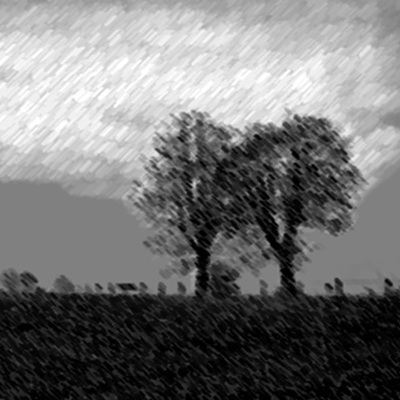But That Is for Another Dream
I crawled from the comfort of half-
a-century quilts, hit the lamp switch,
pulled out a bundle of rejection slips
from the top drawer of the bureau
by the headboard of my bed and searched
through each passionately, one-by-one
hoping there might have been just one
I missed. Outside, it was raining lambs
and lions. I had read them right. I rebound them
and set them down in the form of regretful respect,
eased back into bed, turned off the soft lamp light,
then pulled the quilts about the nape of my neck.
And I sought sleep in those old, worn,
raisin-like hands that had sewn them.
I could almost smell the odor of camphor
it seemed, but that is for another dream.
But not for good
Now life seems to pass at the pace of light
is fast becoming a black hole, pitch bright.
I want to reign it in, everything,
and to slowly start all over again.
I recall, it took Christmas forever
to return, when a hot head seemed clever
and all I wanted was to grow up fast,
to leave the things I loved most in the past.
Oh, how foolish I was to think such then;
didn’t know the fleeting things would truly end.
But it’s not all that was lost I want back
like those Jim Crow laws, or the cotton sack.
Just want the innocence of my childhood,
I longed to grow out of, but not for good.
You Know
You know how sometimes our bodies aren’t ours,
how thy can belong to the ev’ning breeze
or mornings when it is too brisk and cold,
disobedient, when we become old,
when others want silence, we slip and sneeze.
Through all of these testimonies, trials,
we are like the unfolding of a scroll,
gentle, kind, but at other times seethe.
Today,I went down to that old, dried well
and stared at sand that gives no reflection,
saw a doll’s twisted face, so full of hell
like mine, facing closed doors, or rejection.
Haul me out of this pit, she seemed to say.
Should you decide to leave me, that’s okay.
Dolls, Gum, And Bobby Socks
Fuck me if you want. Checkout my profile,
I read in an anonymous e-mail.
I wondered: Money? Mania? When I
viewed a scantily-clad gal’s glad, glazed eyes
( and sure, there was far much more to look at)
peering from the pic, her porno portal
at a world she could almost do without
while she swayed, undeleted under light,
her dance maniacal, more machine-like.
Someone will pay or attempt to buy her
( to seek his bliss from a disarmed angel)
while someone else might want to save her, spend
all, borrow, if needed, to get her back–
the one who bought her dolls, gum, bobby socks.
And Now I Know
You just don’t do that! my daddy would say,
defining the line between father, son.
No new learning could change or make him sway
from using words like, Yisstidy, and Yurn,
as long as he knew I knew what he meant.
Slop the hogs; walk the dogs; get the wood in.
You got sistas, fool; don’t bring home no frien!
Strict for sure, but his ways were never bent.
He wanted to live the separation
that set me apart from him, as if he
were an emblem of a generation:
not of the things to come, but those that be.
And now I know: someone taught him that talk,
who closed the school, and set aside the chalk.
This poem fist appeared in Urthona ( UK), 2010.
‘Fore This Night Is Over
My cat’s scratching my leg, trying to climb
onto my lap, but I rise from the chair,
thinking the vet must clip its claws next time.
They cause such pain I swear and strike the air.
What hurt we often bear to honor love.
Been weeks now since the earthquake hit Haiti.
Damn! The cat’s claws have sunk into my knee,
and there’s this, and far more things to think of.
Love comes in all colors, I told a man
who said it should not merge in black and white.
Someday, though, I hope he will understand
it’s not Us / Them! but what is wrong or right.
My cat naps beside me on the sofa
more scars to come ‘fore this night is over.
First appeared in New Contrast ( South Africa), 2010.
Now, Folk Hail
The abalone shell’s still on the shelf
between the cracked, blue bowl of hard candy,
and the squat bust of Christ who seems bereft
as hope lost inside an empty pantry.
She brought the mollusk shell from Florida,
but the buss of Christ was put there by me;
that was back when I fawned all over her.
She’d say, “The sky is black;” and I’d agree.
Yet, even the best of friends have to part
sometime, when trust becomes brass, love, its dross.
That shell holds the sea; Christ, his broken heart.
The crack in the bowl resembles a cross.
Now, folk hail, “You’ll feel better tomorrow.”
Can feelings fill that part which is hollow?
Underneath the Stars
The moment the earth shook
spewed, buckled, men must
have screamed like women
in its wake. No one imagined
this would happen to Haiti, as
still it hurts like an aftershock
to think of its undoing, ruin
on ruin. Our world will for-
ever be filled with the terrible
stories of this island strewed
like a battlefield. No one can
rewrite this part from history
now that it is rubble and arms
reaching through and out of
the rubble of buildings razed,
mass graves and the possibility
of more. After eight days now
of waiting for water, shelter, for
water, not only those wounded
are quarreling with this quake
as the TV depicts holes in the
souls of the old, and the many
orphaned children who’re left
to console other orphans while
they sleep on night-blankets
underneath the stars that shine
on them as they shine on every-
one else, many who think they
are secure, safe from the throes
of a world caving in on itself.
I Could See Her
After the news and the numbing,
I could just imagine the scene,
when the story settled in that old
haunt of dread and disbelief, how
the mother hummed and moaned
while she dug like a bone-burring
dog to undo the disheveled earth’s
upheaval. She could no longer
allow herself to be aware of any
womanly weakness in her fragile
weariness as she refused to give-
in, refused to allow it to become
an unmarked monument for her
Haitian baby. I could see her
grabbing stick, rock, stone, and
grub from gravity’s defiance as
she broke the dirt’s hold, fold
by gritty fold until she made a
hole round enough to work her
bleeding hands inside its hard
belly, like a midwife pulling a
fetus from the dark, dry, dust-
filled womb of the underworld.
I Dreamed of Hendrix
The white ones unwarranted,
hardly a one cared much for
a colored lad with long locks,
greedy for the guitar and
assorted girls, especially
during that goddamn war.
But I was born to rule
the blues, to do with it
whatever I choose; and
I would take that guitar
and I’d choke that son-
of a bitch! I even made
music with my mouth, by
taking those tiny strings
into my teeth, making them
sing, like a sparrow on
its first outing into early-
April sun; and, the people
didn’t know what to make
of me, a prodigious man, no!
a wild, black, prodigious
man controlling the band-
stand. And I could not
cross the crowds that swarmed
like flies to the concerts, or
wherever I was performing
only to see me, witness
the magic of my every opus,
even in England, when
I was an expatriate. I was
angry as every average
person was at America’s
politics. I was ready for
a revolution long overdue.
I was propelled by the plight
f my people, called ‘colored’
then, but emerging. I, well,
put me in the place like
the parapet, ready to see
the bottom rail rise to
the top as the biblical
passage spoke of an oppressed
people. We were the only
ones, see; all of the Indians
wiped out; or, having lost
distinction of individuality.
I needed that dumb needle,
and the coke in order
to cope, with fame, and
failure too. It became as
perfunctory to me as an
atomizer is to a woman
with night needs, having
to look to more than one
man to earn her quota
in money. I made music,
and the music made me.
America wasn’t only fas-
cinated with this fat, lean
thing making an odd seam
the length of my jeans;
it was also fascinated by
the slow, heavy weight
of a dark man dying by
the help of what it makes
available to this sinking
man’s hands, sometimes
in the notion of his needs;
this, as medicine, knowing
all the time it is dealing
death to him, in disguise;
but, my fame still rise; all
of those unusual beats I
brought, strange chords,
and other things that made
my music amusing. But no
marvelous man has ever
been alive to witness him-
self made into a martyr;
neither me, Malcolm, nor
Martin. And even dead,
sometimes, I find my form-
less mind befuddled by such
ambivalence, as to how they
can kill a man in America,
canonize him after the kill.
It Must Be Organic
I cannot dredge the depths of what I do.
That would be like arguing against art,
the point where form and conjecture construe
this is, to me, the most important part.
I can’t participate in what I make
than the moon crossing the sky in its turn,
or night and day on their axis rotate.
I’m the scar that is left after the burn.
It’s not my wish to will or impose—-
It happens: The artifice’s not controlled
no matter how much I want to compose.
It must be organic. It must implode,
must materialize out of thin air
then I’m awed by what is suddenly there.















































